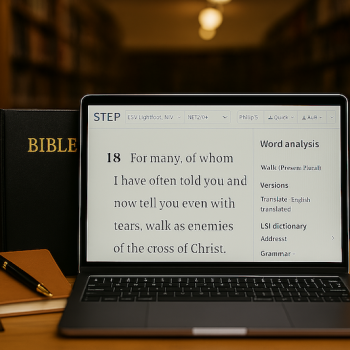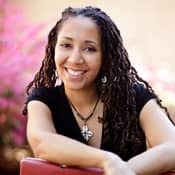I was not a young mother, but I was a young minister. On the later edge of my teenage years, I felt a call to ordained ministry. No bushes burned and no angels descended. There were no declarations saying that I was highly favored or part of a grand regal legacy. I had no ideations of marriage or children in my immediate future. I was no Mary.
Yet like Mary, I felt that circumstances, a heart for God and a message delivered by holy beings in human form were telling me that I had to do something for and with God's people. And, like Mary, I was terrified.
When it came to ordained ministry, I was afraid of public speaking. I was afraid of the sexism and ageism in the church. I was afraid of what it would mean for the plans I had already laid out for my career. I was afraid of what my parents and friends would say. I was afraid of what it would do to my dating life. High class problems, admittedly.
Christian traditions often imagine that Mary was afraid of what God's calling would mean for her reputation. She was afraid of what it might mean to be pregnant so young, so unmarried and while so sexually inexperienced. These same things scare many pregnant girls and women today.
Pregnancy brings embodied fears. Will the baby be healthy? Will I be healthy? What if there are complications with the birth? The baby will have so many needs. Can I manage them all? During my pregnancy, I was simultaneously amazed at what my body could do—grow an entire human being and supporting ecosystem—while also dismayed at how little control I had over the outcome.
Like many expectant parents, I had many hopes for my unborn child. Some hopes were high: that the baby will have more opportunities than me, a solid education, a legacy of which to feel proud, less tragedy, a world that is kinder to gendered, racial and sexual minorities. Other hopes were basic: that all of the baby's needs are met, that every organ and limb works as it should, to only know safety and love. While I know that some of these are unrealistic, I was sure I'd bend over backwards to make them happen. At the end of the day, there was nothing I could do to guarantee how my child would turn out. I have never felt more vulnerable in the world.
So I am amazed that Mary could sing what we now call The Magnificat. How does she move from having a fear that an angel must allay to saying things like, "All generations will call me blessed"? How does she make the transition from the uncertainty of pregnancy to the assurance of a ministry that will not be forgotten?
I've been a minister longer than I've been a mother, so I return there for an answer.
Four or five years into my career in ministry, I stopped trying. I stopped trying to preach like those around me. I stopped trying to look or dress like I thought preachers should. I stopped worrying about what others thought of me. I concluded that God didn't want me to be like other ministers; God wanted me to be me. That was why God called me.
I imagine that Mary got the same kind of revelation. At some point in her pregnancy, she woke up and realized that she had a ministry. She could no more determine Jesus' path in life than any expectant mother can predict the life her child will lead. She could not control what others would think of her. But she was also more than a cog in a large cosmic plan. Rather, she had something to do with and for God's people. God didn't need her to be extra-holy or super-prayerful. God called her to be her. That Advent lesson is both worthy of praise and remembering for generations to come.
12/2/2022 9:10:30 PM





